Cargando...
Recursos educativos
-
Nivel educativo
-
Competencias
-
Tipología
-
Idioma
-
Tipo de medio
-
Tipo de actividad
-
Destinatarios
-
Tipo de audiencia
-
Creador
Lo más buscado
- Experimentos de ciencias para primero
- Siglo XX
- Experimentos prácticos
- Experimentos de acústica educación infantil
- El método científico
- actividades escolares
- Repaso de la multiplicación
- Instrumentos musicales ESO
- Mapa de España
- Actividades con numeros enteros para imprimir
- Instrumentos de madera
- Guía interactiva
- Ángulo completo
- Imprimir material bachillerato de modalidad
- Alexander Fleming
-
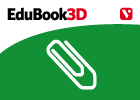
It's a small world
EduBook Organización
- 2636 visitas
Although the Earth is enormous, modern technology has made distances seem much smaller. In the 16th century, Magellan and Elcano took three years to sail around the world for the first time. Today, a…
-
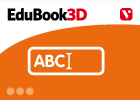
Final self-evaluation 4 - The Universe and our Solar System
EduBook Organización
- 2014 visitas
Complete the sentences with the missing words: are bodies that orbit planets. The planet nearest to the Sun is . The planet farthest from the Sun is . The four planets are Jupiter, Saturn, Uranus and…
-
Match the concepts to the definitions
EduBook Organización
- 1818 visitas
Match the concepts to the definitions: The Sun and the bodies that orbit around it, including the planets. → A person who studies and predicts the weather. → All the living things that live…
-

Orbitrunner | Armor Games
BEATRIZ DE LA PEÑA LIÑAN Docente
- 1 lo usan
- 1416 visitas
Control the Sun with your mouse. Use it to manipulate the planets' paths. The Sun's pull gets stronger as planets get closer. If the gravity is at a right angle to the direction of travel, an…
-
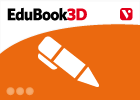
Final evaluation 10 - The Earth and the Moon
EduBook Organización
- 1678 visitas
Calculate the speed at which the Moon moves around the Earth; take into account the following facts: circular orbit, average distance of the Moon from the Earth is 385000 km, period of rotation is 28…
-
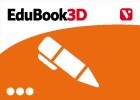
Answer. The Solar System 05
EduBook Organización
- 1639 visitas
Every year, around 10th August, when the Earth crosses the orbit of Comet 109/P Swift-Tuttel, a meteorite shower known as the Perseids or the Tears of Lawrence is produced. Why does this phenomenon…
-
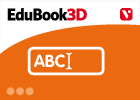
Initial evaluation 4 - The Earth and the Moon
EduBook Organización
- 1447 visitas
Complete the sentences with the missing words: The Moon is the Earth's only . On the Moon's surface there are many caused by the impact of . The Moon completes an orbit of the every 28 days.…
-
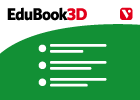
Our planet Earth
EduBook Organización
- 4 lo usan
- 7226 visitas
The Universe is made up of millions of galaxies. Our galaxy is called the Milky Way. It contains millions of stars, including the Sun. The Earth and seven other planets orbit the Sun. Together they form…
-
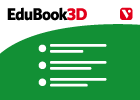
-
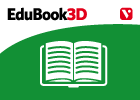
Te estamos redirigiendo a la ficha del libro...












